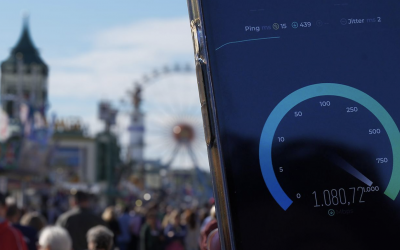According to a new report by Kaspersky, 40 percent of these cyber attacks in Europe target Austria
According to a new analysis by IT security specialist Kaspersky (https://www.kaspersky.de), cybercriminals are increasingly targeting small and medium-sized enterprises (SMEs) in Europe and Africa. They are increasingly disguising their attacks as well-known services such as ChatGPT, Microsoft Office, or Google Drive in order to spread malware. Austria is particularly affected in Europe.
Backdoors, Trojans, and more
According to the study, 40 percent of all detected cases occur in Austria, followed by Italy (25 percent) and Germany (11 percent). According to the Kaspersky report, the biggest threats to SMEs are so-called “backdoors” (24 percent), Trojans (17 percent), and, despite their name, malicious “not-a-virus:downloaders” (16 percent).
Spain (10 percent), Portugal (6 percent), and France (4 percent) show a medium level of threat. The Balkan state of Serbia and the UK are significantly less affected, with around 1 percent each, and other countries such as Romania, Greece, and Switzerland are below 1 percent.
Morocco targeted in Africa
In Africa, Morocco tops the list with 41 percent of all detected cases. Far behind, but still heavily affected, are Tunisia with 24 percent and Algeria with 16 percent. Senegal and Cameroon show a medium level with seven percent each, while Ivory Coast is at the lower end of the scale with five percent, according to Kaspersky.
“Small businesses face the same threats as large enterprises, but they don’t have the same budgets. The key is to use limited resources in a way that provides maximum protection,” explains Marc Rivero, Lead Security Researcher in Kaspersky’s Global Research and Analysis Team.
According to the expert, the most expensive tool is not necessarily the most effective defense against sophisticated malware. “Rather, it’s about understanding the attackers’ mindset and blocking the access routes they systematically seek,” Rivero explains.


